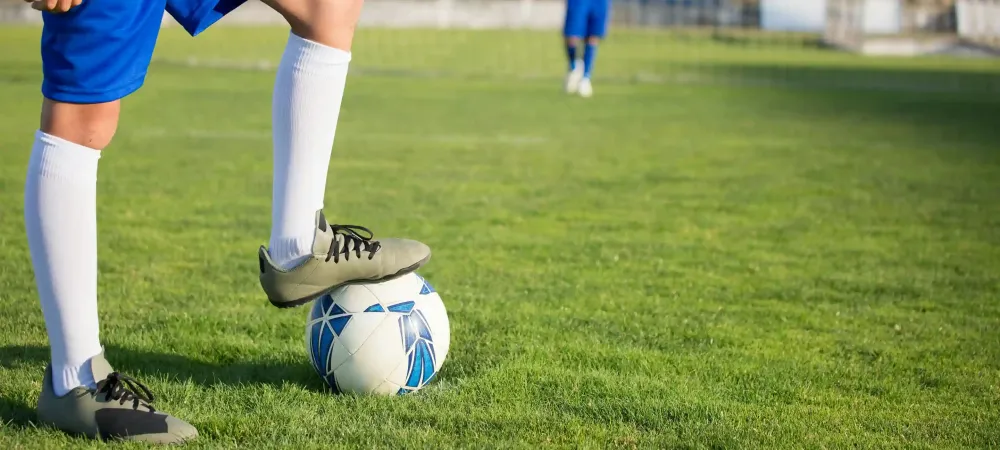
Athletic Field Safety & Playability Audit: Pro Tips for Risk-Free, Top-Performing Sports Surfaces
Need Same Day Service? We Can Help.
Call Us Now at 574-674-5296.
Whether you manage a school district’s fields or oversee a college athletic complex, conducting an athletic field safety audit helps identify potential hazards before they become injuries or liabilities. Regular audits also protect your investment, ensuring surfaces remain playable, compliant, and ready for competition.
Why Routine Safety and Playability Audits Matter
Routine field playability assessments are key to:
- Player safety: Prevents injuries from uneven grades, hard spots, or poor drainage.
- Reputation management: Keeps facilities compliant with NFHS, NCAA, and municipal standards.
- Liability reduction: Demonstrates proactive athletic field risk management to limit exposure.
- Long-term ROI: Extends the lifespan of turf, soil, and drainage systems while avoiding costly overhauls.
Too often, minor issues such as inconsistent slope or grade, lip buildup, soil compaction, and more go unchecked until they affect performance or safety.
Step-by-Step Audit Checklist
Follow our thorough athletic field audit checklist covers everything from soil stability to spectator zones.
1. Surface Evenness, Compaction, and Drainage
- Use laser grading and compaction testers to confirm slope and firmness.
- Check for puddling or depressions indicating poor water flow or uneven grading.
2. Infield/Outfield Lips, Mound Stability, and Transitions
- Inspect for dangerous lip buildup or uneven warning track edges.
- Verify mound and plate elevations meet specification tolerances.
3. Turf Health and Shock Absorption
- Look for bare or compacted areas that affect traction or ball roll.
- Assess weed encroachment and turf density to maintain consistent footing.
4. Hardware and Infrastructure
- Ensure bases, posts, dugouts, and fences are secure and free of protrusions.
- Inspect scoreboards, benches, and spectator zones for compliance.
5. ADA and Spectator Safety
- Confirm accessible routes, seating, and ramps meet ADA standards.
- Evaluate bleacher safety, signage, and barrier integrity for crowd control.
Red Flags & Quick Fixes
Certain issues demand immediate attention during any athletic field checklist:
- Standing water or muddy areas after rain
- Exposed irrigation heads or valve boxes
- Gaps, divots, or loose base anchors
- Excessive infield lip formation
- Unstable mound or home plate zones
When to Repair In-House vs. When to Call a Professional
Knowing when to handle repairs internally versus bringing in a professional crew is key to effective athletic field risk management. Minor issues can often be managed in-house with routine maintenance. However, more complex challenges — including major grading corrections, subsurface drainage installation, or infield laser grading — will require specialized equipment and expertise to restore optimal slope, surface consistency, and safety standards.
If your facility is located in Indiana, Michigan, Illinois, Ohio, Pennsylvania, Missouri, or Wisconsin, contact RZ Sports Turf for professional athletic field audits, grading, and renovation services to ensure your fields meet top safety and playability standards.
Tools & Technology for Field Audits
Modern tools simplify sports field compliance checks:
- Laser grading systems: Confirm precise slope and surface evenness.
- Compaction testers: Evaluate field firmness for injury prevention.
- Advanced turf sensors: Track soil moisture and root-zone oxygen levels.
- Smartphone apps & readiness reports: Document conditions, schedule maintenance, and track improvements.
Enhancing Playability: Beyond the Basics
A playable field performs consistently under all conditions — firm enough for footing, soft enough for safety. High-quality field playability assessments go beyond visual checks by focusing on:
- Proper root-zone aerification and sand topdressing programs.
- Routine rolling of the playing surface to restore smoothness.
- Under-fence weed control to prevent edge degradation.
- Fraise mowing and soil capping to rejuvenate high-traffic zones.
Proactive maintenance ensures peak athletic performance and minimizes injury risk.
RZ Sports Turf’s Approach to Athletic Field Audits
In the Midwest, sports facility safety depends on adapting to climate extremes.
- Freeze-thaw cycles create uneven settling and drainage issues.
- Heavy spring rains saturate root zones and promote compaction.
- Summer droughts stress turf, reducing cushion and recovery.
For USDA Zones 4–6, scheduling audits before spring play is essential to restore grade, drainage, and turf vigor after winter dormancy.
At RZ Sports Turf, our team specializes in complete field evaluations and repairs in the Midwest and Great Lakes region. We identify hazards, drainage inefficiencies, and playability flaws then provide actionable recommendations and repair options. If you have concerns about your field’s safety or would like professional help restoring optimal playability, give us a call to schedule an on-site assessment.